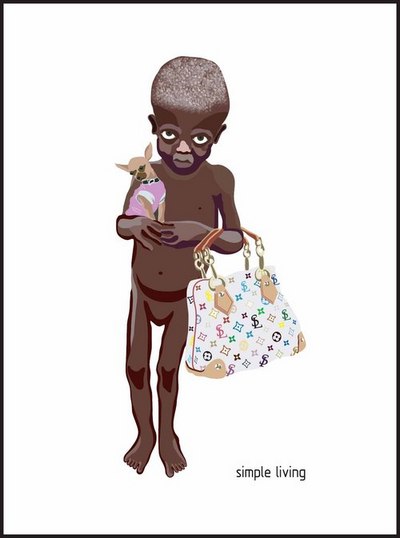from The Guardian by Patrick Kingsley
The internet as a model of free speech and access is coming to an end, says web expert Tim Wu
The internet is under threat. At risk is what's known as "net neutrality", or the principle of free access for each user to every online site, regardless of content. That's the view of the man who coined the above term, Tim Wu, whose new book, The Master Switch, was published yesterday. It argues the internet now runs the risk of not just political censorship – as seen in Libya and Egypt, and in the American reaction to WikiLeaks – but that of commercial censorship, too. Monopolies such as Google and Apple may soon decide to choose which parts of the internet to give us – or switch off – and in some cases have already started to do so.
"We are in a critical period for the internet," Tim Wu, the book's author, says. "What the internet is, is in flux." Wu looks, a colleague suggests, like a cleverer version of Keanu Reeves. In reality, he is a senior adviser to the Obama administration on, fittingly, the competition issues that concern internet and mobile industries. A position which, ironically, makes him a distant colleague of the officials waging war against WikiLeaks and Bradley Manning. An academic lawyer by trade – he has taught at Chicago, Columbia and Stanford – Wu has also long been a respected commentator on internet issues, and writes regularly for Slate magazine. The first to coin the term "net neutrality", Wu is sometimes mentioned in the same breath as social media experts Jay Rosen and Jeff Jarvis, internet evangelist Jay Rosen, and sceptics Evgeny Morozov, Nicholas Carr and Jaron Lanier. But unlike these six, whose work is mainly concerned with a discussion about the (de)merits of online activity, Wu's book perhaps places him in a critically different category. The Master Switch is less concerned with the rights and wrongs of the internet today, and more concerned with its long-term future.
"The internet is about 15 years into its cycle as an open medium," says Wu, "and at that moment in their cycle, most open media tend to turn to closed media." What Wu means is that the internet might be about to go the same way as the information services of the 20th century: the telephone, radio, cinema and television. "Internet is the descendant of these industries," Wu says, "a 15-year-old teenager." And if we want to know what kind of adult this teenager will become, "the clearest way is to look at its parents, and look what happened to them when they reached their 20s".
What happened, he argues, is that they went from being technologies used by lots of different individuals and companies, to ones controlled by just a few monopolies. He uses the example of AT&T, the great American telephone monopolist, "who went to the American people and said, 'We will be good, we will build the best telephone network in the world: give us the monopoly'." He points to the American film industry, and shows how it quickly was transformed from an industry that was relatively easy to enter, to one mainly controlled by a few Hollywood studios.
Wu's fear is that a similar consolidation of power may be about to happen to the internet. "When we talk about the internet," he says, "we're only talking about three or four companies . . . Amazon, Google, Apple, Facebook." These big four are so large that one or more of them could team up with a mobile network and end net neutrality (a term that Wu coined in 2003) by privileging that network's clients above all others. It's something that is already partly happening. Apple's iPhone was at first only available to AT&T customers in the US and O2 clients in the UK. And since Google teamed up with American phone firm Verizon last summer, it now at least has the option to do something similar. Wu won't comment on these deals directly, due to his position with the US government. But, he says, like AT&T in the 1910s, "Google has similarly promised the world: 'We will be a good company.' And we have essentially conferred it a dominance over the market, and over how we find our information, because we believe it will be good." However, warns Wu, "the question everyone has is whether one day Google will have its Heart of Darkness moment."
If it does, says Wu, what's at stake is the principle on which the internet was founded. At its inception, "the internet was typically a place where you could put up content without anybody's permission". But partnerships between the bigger web-related companies might squeeze out the smaller ones. Using the example of the online news industry, Wu suggests that if newspapers were to follow the example of Rupert Murdoch's new iPad-based "paper", The Daily, and "become exclusive partners with Apple, it may be easier for them to make money, but we may also end up with a media on the internet that is significantly more closed than it is now." This is because, he says, "You can imagine a future where blogs don't really have a meaningful future, because the content provided on a platform [such as Apple] doesn't create any room for anyone other than its exclusive media partners." So, Wu concludes: "The internet as a forum for speech, as a place where an individual with a talent can compete with a major newspaper – I'm suggesting that model may be passing."
But though the internet was a freer place in its younger days, I ask Wu, wasn't it only available to a privileged few? Big conglomerates may be growing ever powerful, but haven't they at least brought the internet to a much wider audience than the academics and techies of the early 90s? "It shouldn't be a trade-off," Wu replies. "There is some truth to the idea that companies are interested in consumers, and so they bring [the internet] to a broader marketplace – but it is still important to stand up for the original values of the internet." Wu sees these values "as fundamental to a free society", values that we should preserve even as the internet becomes "a mass consumption product. And I think it's possible. You don't have to throw those values out the window just because millions of people are using it."
Wu recommends protecting these values through the maintenance of something that in his book he calls the "separation principle". Just as journalists maintain "a separation of news and opinion", Wu argues, "the people who move and carry information should stay at some distance from the creators of content, because they have a natural conflict of interest." In other words, though Wu does not name names, companies such as Apple and Google should stay well away from mobile networks such as AT&T and Verizon.
He feels government and consumers have a dual responsibility to police this conflict. Legislation should prevent mergers between the carriers of internet content, and the producers of the content. Consumers should boycott any company that threatens net neutrality. Will it work? Wu is undecided. "My big question is whether, five years from now, the big four companies will be even more consolidated, with other companies mattering less and less – or whether the internet will have proved its truly radical nature, and a whole new cast of characters will have emerged . . . And I don't know the answer."



